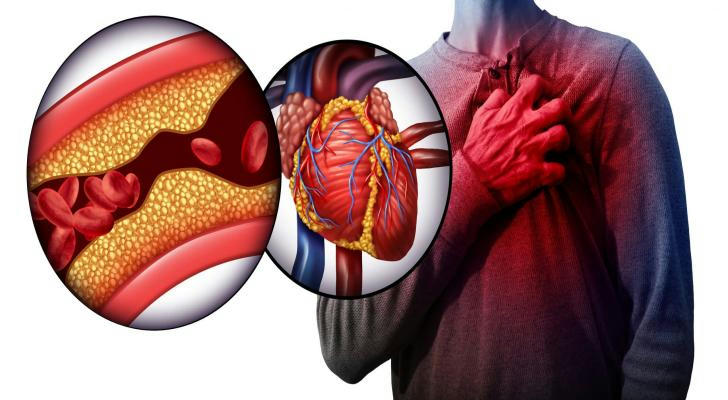The Power of Positive Thinking: Managing high blood pressure

Hypertension, or high blood pressure, has become a growing concern in modern society, affecting millions of people worldwide. The good news is that hypertension can be prevented or managed through simple lifestyle changes and healthy habits.
Prevention is the Best Medicine
Preventing hypertension requires a proactive approach to our health. Here are some simple yet effective ways to reduce our risk of developing hypertension:
- Eat a Balanced Diet: A healthy diet rich in fruits, vegetables, whole grains, and lean proteins can help prevent hypertension.
- Stay Hydrated: Drinking plenty of water throughout the day can help regulate our blood pressure.
- Exercise Regularly: Engage in at least 30 minutes of moderate-intensity physical activity, such as brisk walking, cycling, or swimming, every day.
- Manage Stress: Chronic stress can increase our risk of developing hypertension. Practice stress-reducing techniques, such as meditation, yoga, or deep breathing exercises.
- Get Enough Sleep: Aim for 7-8 hours of sleep every night to help regulate our hormones and metabolism.
Managing Hypertension
If we have already developed hypertension, it's essential to manage it effectively to prevent complications and improve our quality of life. Here are some tips:
- Adhere to Medication: Take our medications as prescribed by our doctor to help manage our condition.
- Monitor Our Health: Regularly monitor our blood pressure, blood sugar levels, and other health indicators to ensure we're on track.
- Make Lifestyle Changes: Make healthy lifestyle changes, such as quitting smoking, reducing our alcohol intake, and increasing our physical activity levels.
- Seek Support: Join a support group or seek counseling to help us cope with
High Blood Pressure Complications
- Heart Disease and Stroke: High blood pressure can lead to heart disease, heart failure, and stroke.
- Kidney Damage: High blood pressure can damage kidneys and lead to kidney failure.
- Eye Damage: High blood pressure can cause blood vessels in the eyes to rupture, leading to vision loss.
- Cognitive Decline: High blood pressure has been linked to an increased risk of dementia and cognitive decline.
- Peripheral Artery Disease: High blood pressure can lead to peripheral artery disease, which can cause pain in the legs and feet.
- Aneurysms: High blood pressure can cause aneurysms, which are bulges in blood vessels that can rupture and lead to death.
- Kidney Stones: High blood pressure can increase the risk of kidney stones.
- Sleep Apnea: High blood pressure can increase the risk of sleep apnea, a condition where a person stops breathing for short periods during sleep.

Lisinopril and Benazepril for Hypertension
Lisinopril is a commonly used medication for hypertension. It helps to reduce blood pressure by blocking the action of angiotensin-converting enzyme (ACE), a chemical that constricts blood vessels and increases blood pressure. Here are some recommendations for using lisinopril:
- Use lisinopril as first-line therapy for hypertension in people with diabetes and urinary albumin-to-creatinine ratio (UACR) ≥300 mg/g creatinine or 30–299 mg/g creatinine.
- Monitor serum creatinine/estimated glomerular filtration rate (eGFR) and serum potassium levels at least annually in patients treated with lisinopril.
For example, Let's delve into the daily life of Ms. Era, who has high blood pressure.
Lifestyle Adjustments: To manage her condition, Ms. Era has to make conscious choices about her daily habits. She limits her sodium intake, avoiding processed and packaged foods, and instead opts for fresh fruits, vegetables, and whole grains. She's also mindful of her fluid intake, drinking plenty of water and limiting her consumption of caffeine and alcohol. Regular exercise, such as brisk walking or yoga, has become an essential part of her routine to help lower her blood pressure.
Medications: Ms. Era takes medications as prescribed by her doctor to help control her blood pressure. These may include diuretics, beta blockers, or ACE inhibitors, which she takes regularly to ensure her blood pressure remains within a healthy range.
Emotional Experiences: Living with high blood pressure can be a constant source of worry for Ms. Era. She may feel anxious about the potential risks associated with her condition, such as heart disease or stroke. She may also feel frustrated about the need to make significant lifestyle changes, which can be challenging to maintain.At times, she may feel like she's lost control over her body and her health. However, with the support of her loved ones and healthcare team, Ms. Era is learning to cope with her emotions and take proactive steps to manage her condition. She's come to realize that small changes to her daily habits can make a big difference in her overall well-being.
